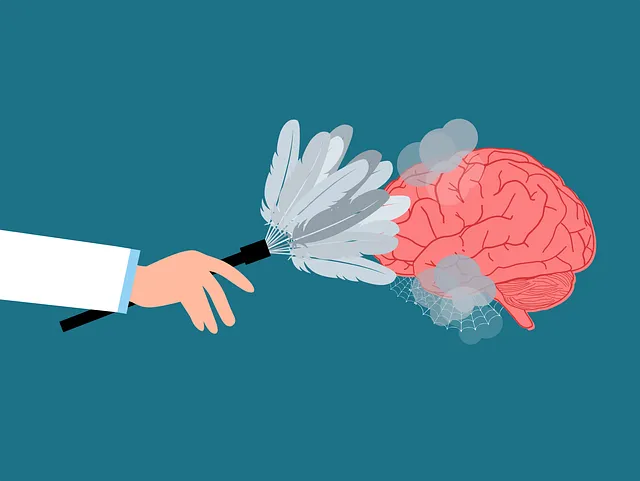The Superior Kaiser Permanente mental health facility offers a holistic approach to mood regulation, focusing on balancing emotions through mindfulness, self-care, and emotional intelligence. Their integrated services, cultural competency training, and effective communication strategies provide tailored care for diverse mood disorders. Mindfulness practices, physical activity, sleep, nutrition, and self-care routines are key tools promoted by the facility to enhance resilience and overall well-being.
Mood regulation is a crucial aspect of emotional well-being, impacting every facet of our lives. This comprehensive guide explores effective strategies to manage and enhance your mood, drawing insights from the pioneering practices at the Superior Kaiser Permanente Mental Health Facility. We’ll delve into the complex mind, uncover professional approaches, and provide practical tools for daily life, empowering you to take charge of your emotional state.
- Understanding Mood Regulation: Unraveling the Complex Mind
- Kaiser Permanente Mental Health Facility: A Comprehensive Approach to Mood Management
- Practical Strategies for Daily Life: Empowering Your Emotional Well-being
Understanding Mood Regulation: Unraveling the Complex Mind

Understanding Mood Regulation involves delving into the intricate workings of our minds, a complex landscape where thoughts, emotions, and behaviors intertwine. The human mind is a dynamic tapestry, constantly evolving based on experiences, genetics, and environmental factors. At the Superior Kaiser Permanente mental health facility, professionals recognize that effective mood regulation isn’t about suppressing emotions but balancing them.
This balance can be achieved through practices such as Mindfulness Meditation, which encourages individuals to cultivate awareness of their thoughts and feelings without judgment. Additionally, Self-Care Routine Development for Better Mental Health plays a crucial role in maintaining emotional stability. Emotional Intelligence, the ability to recognize and manage one’s own emotions as well as understand the emotions of others, is another vital tool in navigating life’s challenges and regulating mood.
Kaiser Permanente Mental Health Facility: A Comprehensive Approach to Mood Management

The Superior Kaiser Permanente mental health facility stands out for its comprehensive approach to mood management, integrating a diverse range of services under one roof. This model ensures that individuals dealing with mood disorders receive holistic care tailored to their unique needs. Beyond traditional therapy and medication management, the facility emphasizes the importance of cultural competency training for healthcare providers. This training enables staff to offer trauma-supportive services, recognizing the impact of past traumatic experiences on mental health.
Effective communication strategies are also a cornerstone of this comprehensive approach. By fostering open dialogue between patients and their care teams, the facility aims to create safe spaces where individuals can express their feelings and concerns freely. This emphasis on communication further strengthens the bond between patient and provider, enhancing the overall effectiveness of mood regulation strategies.
Practical Strategies for Daily Life: Empowering Your Emotional Well-being

In our daily lives, managing emotions effectively is a powerful tool for enhancing overall well-being. Kaiser Permanente, renowned for its superior mental health facilities, offers valuable insights into practical strategies to navigate life’s challenges. One key approach is incorporating mindfulness practices, such as meditation and deep breathing exercises, which help individuals become more aware of their feelings and responses, fostering emotional balance.
Additionally, engaging in regular physical activity and adopting healthy habits like adequate sleep and balanced nutrition play a significant role in the emotional healing processes. Self-care practices, encouraged by mental health policy analysis and advocacy groups, empower individuals to prioritize their emotional needs. By integrating these strategies into daily routines, folks can effectively regulate mood and cultivate resilience, contributing to a more fulfilling life.
In conclusion, understanding and managing moods effectively is a powerful tool for enhancing overall well-being. The article has explored various aspects of mood regulation, from the intricate mechanisms of the mind to practical strategies for daily life. By adopting evidence-based practices, such as those offered by the superior Kaiser Permanente mental health facility, individuals can navigate emotional challenges and foster resilience. Practical tools and a comprehensive approach, as discussed in this article, empower people to take charge of their emotional health and lead more fulfilling lives.






